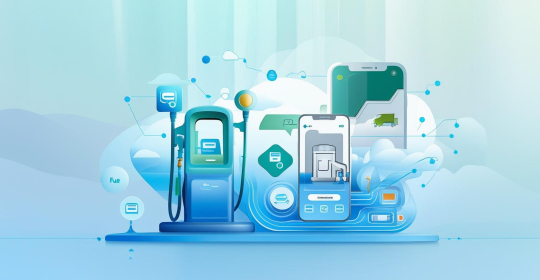One underutilized, yet useful method is using sporting events, from internal company tournaments to national competitions, and world-class sporting tournaments like the Olympics.
Sporting events offer an emotionally rich platform that allows companies to present themselves as unique, inclusive, and people-oriented employers while strengthening a strong and connected internal culture. Let's look at how sporting events can shake employees' views about their workplace and how the world perceives a brand.
The Essence of Employer Branding
Employee branding refers to a company's reputation as an employer and its value proposition to current and prospective employees. It determines how attractive the company is to job seekers and how proud existing employees are to be associated with it. The traditional employer's branding depends on compensation packages, career development, and organizational values.
On the other hand, non-conventional flexibility methods like involvement in spring events are becoming more influential. This is because sports resonate universally with values like teamwork, perseverance, strategy, health, and achievement. All of which align with desirable workplace traits.
How Sporting Events Impact Employer Branding
Sporting Events show the human side of an organization. When companies permit staff to participate in charity runs, company football leagues, or even fantasy sports leagues, it signals a willingness to support employee wellness and fun. Likewise, it displays leadership’s approachability and openness. For example, social media photos of employees cheering during the World Cup or internal ping-pong tournaments break the rigid “corporate” mold, helping outsiders see the company as vibrant, caring, and contemporary.
Promoting Health & Well-Being
Adding sports into company culture shows a commitment to physical and mental health. Employers that sponsor gym membership, organize wellness challenges, or celebrate employees who complete marathons are implicitly branding themselves as champions of a healthy lifestyle. Therefore, this attracts top talent who prioritize work-life balance.
Community Engagement
Sponsoring local sports teams or participating in sports-related charity events can boost the brand’s reputation in the broader community. This involvement depicts corporate social responsibility and a commitment to giving back, which is increasingly valued by Gen Z and millennial workers.
How Sporting Events Strengthen Internal Team Culture
Sporting events don't just polish external perception. They equally transform internal dynamics in unique and lasting ways. Some of which are as follows.
Eliminates Hierarchies
Usually, hierarchy in the workplace can be a barrier to open communication. During sports events, everyone becomes a teammate, fan, or participant regardless of rank. A CEO playing goalkeeper while the intern scores a goal fosters mutual respect and relatability. This egalitarian environment usually translates into improved workplace communication and more organic collaboration in day-to-day operations.
Promoting Trust & Collaboration
Team sports require strategic thinking, role, charity, and trust. These are the same pillars that define successful work teams. When employees bond over a volleyball match or celebrate a team member’s sports achievement, they are not just having fun. They are cultivating relational capital. These interactions usually lead to stronger interdepartmental relationships, quicker conflict resolution, and increased willingness to work together on projects.
Celebrating Diversity
Sport is a universal language beyond race, age, gender, and cultural background. Creating platforms for employees from different backgrounds to connect over a shared love for sport builds a sense of inclusion and mutual respect.
For instance, international viewing parties for the Olympics or AFCON (Africa Cup of Nations) can allow employees to show and celebrate their cultures. Thus, creating a company culture that is more inclusive and globally-minded.
Practical Applications in the Workplace
Organizations looking to maximize the power of sporting events can adopt numerous tactical approaches. These can be customized according to workforce size and budget. Below are some recommendations.
- Organize intramural leagues for sports like football, basketball, or table tennis.
- Launch company-wide step count competitions or fitness challenges.
- Offer incentives or wellness points redeemable for rewards.
- Host viewing parties for major tournaments in office lounges.
- Participate in corporate games or charity marathons.
- Collaborate with local gyms or fitness influencers to host workshops.
- Share photos or employee testimonials from sports initiatives on LinkedIn and Instagram.
The emotional charge of sports cannot be overstated. Engaging employees through sports offers emotional resonance that sticks with them longer than a PowerPoint presentation ever could. The following are some benefits that they offer to employees.
Creating Shared Moments
Sporting events create collective memories. There is the excitement of a last-minute goal. Likewise, the agony of a missed penalty during an office watch party creates emotional bonds that boost loyalty and engagement.
Enhancing Emotional Morale
There is the endorphin boost from playing sports, the camaraderie from watching games together, and the thrill of healthy competition. All of these contribute to higher job satisfaction and reduced stress levels.
Offers Identity & Belonging
Employees who see themselves reflected in the company's actions, be it a shared love for basketball or the pride of supporting a national team, are more likely to feel connected to the organizational identity.
A Strategic Imperative
Sporting events can change employer branding and team culture in deep and enduring ways. The most successful workplaces are those that win on and off the field. By adding sporting events into company DNA, employers can score big, both in the eyes of their people and the world at large.





